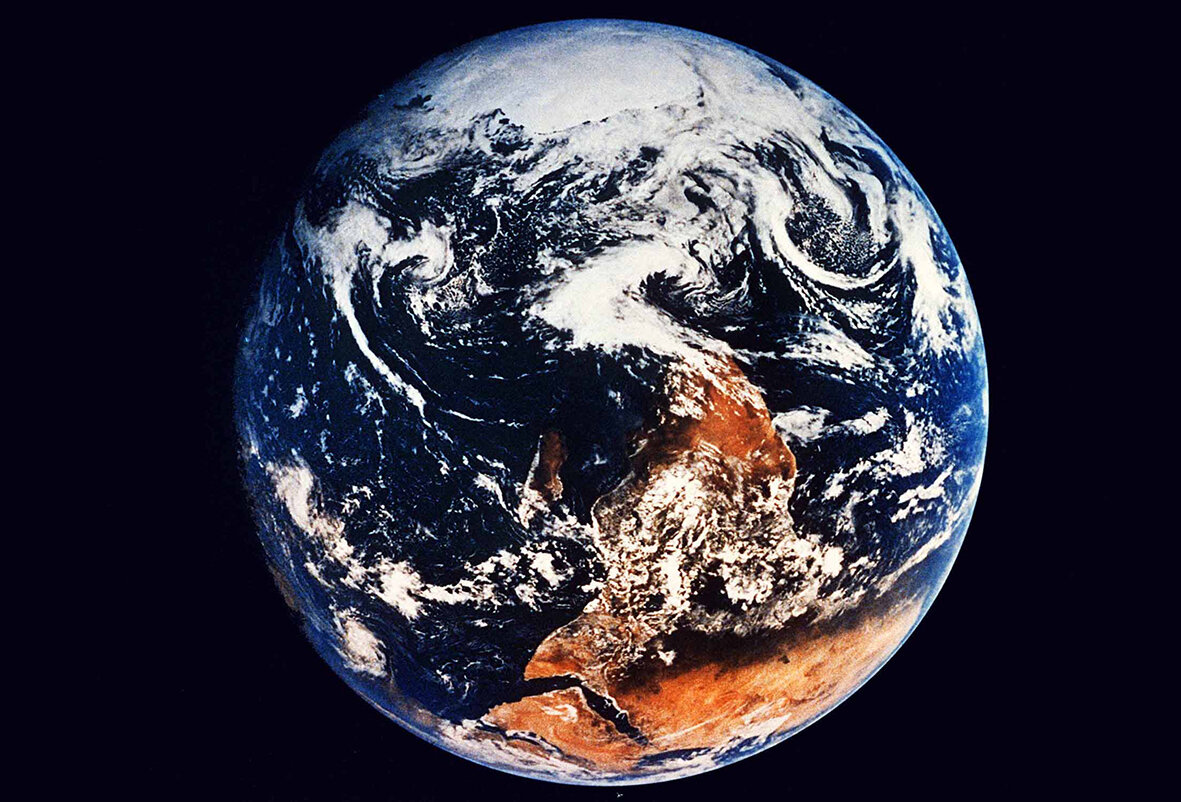By Roland Ashby
“We must hurry” in tackling climate change, German Chancellor Angela Merkel said this week. She was speaking in the aftermath of catastrophic floods in Germany, literally sweeping away lives, homes and livelihoods. Listening to some of the shocked and traumatised survivors was heartbreaking.
At the same time as these unparalleled downpours in Western Europe, a record-breaking heat wave hit the Vancouver area of Canada and the Pacific North West region of the US, leading to large wildfires fires and scores of deaths.
In the last few days severe flooding has also caused death and mayhem in central China.
These are just the latest in a long series - over decades - of alarm bells, ringing ever more loudly, around the globe.
“We are facing a man-made disaster of global scale,” Sir David Attenborough* warned in late 2020. The world-renowned 94 year old naturalist and broadcaster said the world is “heading for disaster”, with irreversible tipping points now looming. “For the first time now you can sail from the Pacific into the Atlantic across the North Pole in the summer, and before long it looks as though you are going to be able to do that the year round and if you do that... [it’s] what people call a tipping point, when in fact it is not reversible.
“If you are going to have all of those thousands of tons of freshwater in the icecaps melting and going into the sea, rising the sea level, changing the salinity, changing the climate and the way the winds circulate around the world, you are interrupting and changing a fundamental rhythm that our world has lived with for... millennia.”
Prince Charles, another long-term and passionate advocate for the environment, had earlier warned of the “comprehensive catastrophe” climate change was in danger of becoming, and called for a “Marshall-like plan for nature, people and planet”.
“We must now put ourselves on a war-like footing, approaching our action from the perspective of a military-style campaign,” he said in a video.
Both men made their pleas for urgent action while unprecedented fires swept across the west coast of America, mirroring similarly devastating fires across Australia earlier in the year.
Almost three years ago, in October 2018, the UN’s Intergovernmental Panel on Climate Change (IPCC) warned that the world had only 12 years to limit the increase in global warming to no more than 1.5c. To go beyond this, the panel warned, even by half a degree, would lead to catastrophic droughts, floods and extreme heat.
Faced with such a doomsday scenario, how should Christians and other people of faith respond?
Pope Francis in his encyclical on ecology and climate, Laudato Si’ – On Care For Our Common Home, quotes Benedict XVI in calling for an “ecological conversion”: “The external deserts in the world are growing, because the internal deserts have become so vast.”
“For this reason,” Pope Francis adds, “the ecological crisis is also a summons to profound interior conversion. It must be said that some committed and prayerful Christians, with the excuse of realism and pragmatism, tend to ridicule expressions of concern for the environment. Others are passive; they choose not to change their habits... So what they all need is an ‘ecological conversion’, whereby the effects of their encounter with Jesus Christ become evident in their relationship with the world around them. Living our vocation to be protectors of God’s handiwork is essential to a life of virtue; it is not an optional or a secondary aspect of our Christian experience.”
For theologian Matthew Fox, ecological conversion requires us to experience the beauty of nature and see it as a mirror of God’s beauty.
“Pre-modern peoples understood ‘God as beauty’... The Navajo people have a prayer that deserves to be sung daily by all of us:
I walk with beauty before me
I walk with beauty behind me
I walk with beauty above me
I walk with beauty below me
I walk with beauty all around me
Your world is so beautiful, Oh God.
Dr Fox says we must listen to other pre-modern thinkers too: “Eckhart says: ‘This then is salvation, to marvel at the beauty of created things...’ Aquinas says God is a ‘fountain of total beauty’ and ‘beauty itself beautifying all things’”.
The late Thomas Berry, who described himself as a ‘geologian’, warned that humanity does not have a sustainable future unless it learns that “the universe – and in particular planet Earth – is a communion of subjects, not a collection of objects”.
“If we don’t learn that, nothing’s going to work,” he said. “Our... future is inseparable from the larger [integral Earth] community that brought us into being and which sustains us in every expression of our human quality of life... What happens to the outer world happens to the inner.” See: https://www.youtube.com/watch?v=e0XBltUQ8qU
As well as the many practical steps each of us can take to reduce our carbon footprint, we can also apply pressure on our banks and retirement funds to divest from fossil fuels. See:
www.marketforces.org.au (in Australia)
www.marketforces.org.uk (in the UK)
Banktrack (www.banktrack.org) is a global organisation tracking the involvement of banks in financing business activities with a negative impact on people and planet.
*Sir David’s latest film David Attenborough: ‘A Life on Our Planet’ is available on Netflix. He describes it as “My witness statement and my vision for the future. It’s the story of how we came to make our greatest mistake, and how, if we act now, we can put it right.”
